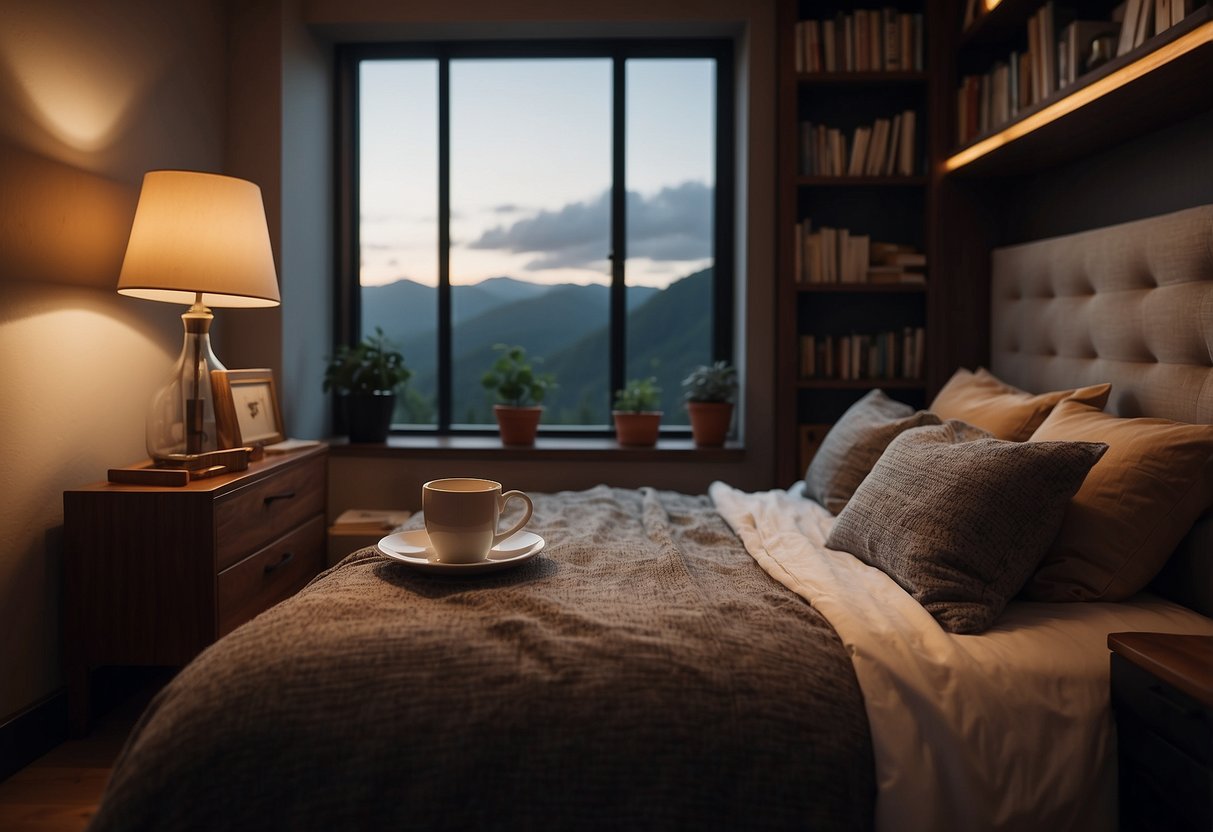
Lifestyle Choices and Their Influence on Sleep Quality
Sleep quality can be significantly impacted by various lifestyle choices. Two crucial aspects to consider are the role of diet, exercise, and sleep hygiene, and the effects of stimulants and alcohol.
Diet, Exercise, and Sleep Hygiene
A balanced diet rich in nutrients is essential for quality sleep and good health. Diets high in processed foods or sugars can lead to disruptions in sleep patterns. Consuming meals at regular intervals and avoiding heavy or spicy foods before bedtime can promote better rest.
Regular exercise contributes to improved sleep quality. Physical activity helps regulate the circadian rhythm and reduce stress levels, which are beneficial for sleep. However, intense workouts close to bedtime could increase alertness and make it harder to fall asleep.
Sleep hygiene, which includes practices and habits that promote good sleep, is vital. Establishing a regular sleep schedule, creating a restful environment, and limiting exposure to screens before bed can all enhance sleep quality. Ensuring the sleep environment is dark, quiet, and cool can also aid in falling and staying asleep.
The Impact of Stimulants and Alcohol
Consuming stimulants like caffeine can have a notable impact on sleep quality. Caffeine, found in coffee, tea, and many soft drinks, is a known sleep disruptor. It can remain in the system for hours, potentially delaying sleep if consumed late in the day. Limiting caffeine intake, especially in the afternoon and evening, can help improve sleep.
Alcohol, although sometimes used as a sleep aid, can impair sleep quality. While it might help individuals fall asleep faster, it can disrupt the sleep cycle, leading to fragmented sleep. Alcohol can also affect REM sleep, resulting in less restorative rest. Reducing or avoiding alcohol consumption, particularly close to bedtime, can thus enhance overall sleep quality.
Optimizing Your Sleep Environment
Creating the ideal sleep environment can significantly impact sleep quality. Key factors like room atmosphere, light, and temperature play a vital role in promoting better rest.
Creating a Restful Bedroom Atmosphere
A tranquil bedroom atmosphere is essential. Start by ensuring the room is quiet, using earplugs or white noise machines if necessary. Comfort is paramount; invest in a good-quality mattress and pillows suited to personal preferences. Cleanliness also matters. Keeping the sleeping area tidy can create a more welcoming environment. Minimize clutter, as an organized space can reduce stress and promote relaxation.
Using calming colors in bedroom decor might help induce sleep. Shades of blue, green, and other muted tones are often considered soothing. Incorporating these colors into walls, bedding, and accessories can create a more restful setting.
The Role of Light and Temperature
Light exposure greatly impacts sleep patterns. At night, it’s beneficial to limit exposure to blue light from screens, as it can interfere with the body’s natural sleep-wake cycle. Using blackout curtains can help keep the room dark, promoting deeper sleep. It’s advisable to dim household lights in the evenings to signal to the body that it’s time to wind down.
Temperature also plays a critical role. The ideal bedroom temperature for most people is between 60-67°F (15-19°C). Cooler environments help the body maintain a lower core temperature, which can be more conducive to sleep. Adjusting thermostats or using fans and space heaters can help achieve the optimal temperature. Ensuring proper ventilation can further enhance comfort, creating a more pleasant sleep environment.
Technological Influences on Sleep Patterns
Technological devices can significantly impact sleep quality. Two key areas of concern include exposure to blue light from screens and the general disruption caused by electronics.
Blue Light Exposure from Screens
Using computers, tablets, and smartphones emits blue light. This blue light can interfere with the body’s circadian rhythm. The circadian rhythm is a 24-hour cycle that regulates sleep-wake patterns, among other bodily functions.
Exposure to blue light in the evening can suppress melatonin production, a hormone that promotes sleep. Melatonin levels typically rise in the evening, signaling to the body that it is time to rest. However, blue light can delay this process, making it harder for individuals to fall asleep.
Studies have shown that limiting screen time at least one hour before bedtime can improve sleep quality. Some devices also offer blue light filters or “night mode” settings, which reduce the amount of blue light emitted and may help minimize its impact on sleep patterns.



